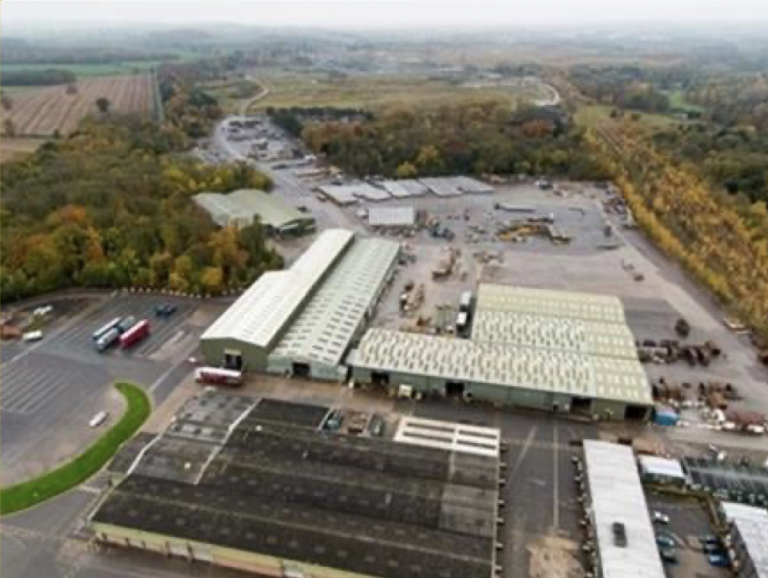New letting at Burton business park
Browne Jacobson and University of Nottingham launch Knowledge Transfer Partnership to promote equality, diversity and inclusion in legal sector
CEO Sleepout urges Nottingham business leaders to spend a night outside
Charity organisers are asking company bosses to join them in the latest CEO Sleepout event which is taking place in Nottingham.
The national initiative raises vital funds to combat homelessness by asking business people from the region to sleep outside and experience one night of what homeless people encounter. This will be the sixth event CEO Sleepout has held in the area since 2016.
Chief Executive Bianca Robinson said: “Every year, the great people of the Nottinghamshire business community have come out in force to spend a night sleeping outside.
“To date CEO Sleepout Nottingham has raised a whopping £237,617 and we’re aiming to reach over the quarter of a million mark this year.”
Speaking of the current economic challenges we are facing, such as the cost-of-living crisis and rising bill prices, Bianca added: “We are seeing desperate inequality all around us because of a turbulent few years.
“Some people will possibly face a real dread of eviction if they fall behind on payments and there is not enough affordable housing to ensure everyone has a secure roof over their heads.
“We need to change this and make a stand against the forces pulling people into homelessness in this country.”
Funds from the November sleepout at Meadow Lane Stadium will benefit charities on the frontline of homelessness and poverty in the area, including Notts County Foundation, Emmanuel House and The Friary.
Denis Tully, the CEO of Emmanuel House, said: “The sleepout is a unique event to raise vital money for charities like ours to fund frontline services for people who need them the most.
“The insights shared about what homelessness is changes understanding and perspectives, which is so important in the long run.”
A large number of local people have already signed up to spend a night under the stars and raise vital funds but there is a limited number of spaces remaining.
Speaking about this year’s participants, Bianca added: “I’m excited to meet everyone who has already signed up.
“It’s an unforgettable night rubbing shoulders with like-minded peers in the business community and there is still time to sign up – all you need is a big heart and a sleeping bag.”
Patrick Dobb, director of Lace Marketing, is taking part in the event for the second time and hopes to raise £1,000. Speaking of his inspiration to sleep out, he said: “I have spent a night in the cold with CEO Sleepout before after I was inspired by a young man called Kurt who was living on the streets through no fault of his own.”
He added: “I would encourage anyone to get involved, it is a great chance to meet like-minded people and raise money for an excellent cause.
“Last year, I signed up 72 hours before the event, so it is never too late!”
The event will be sponsored by 200 Degrees Coffee which has supplied fresh coffee to participants spending a night in the cold for the last six years.
CEO Sleepout is hoping to raise £40,000 at this year’s event to add to the overall total of £3.1 million which has been raised by the national initiative since it was founded in 2013.
For more information or to sign up for the next Nottingham sleepout at Meadow Lane Stadium on November 10th, visit ceosleepoutuk.com/nottingham
William Davis Homes makes three senior appointments


Administrations across the Midlands leap over 60% as economic headwinds start to take their toll
Flurry of new lettings at Derbion
Trust benefits from government cash boost
Manchester plastic products firm acquires Nottinghamshire business
Major Nottingham residential scheme reaching to 22 storeys recommended for approval
Legal 500 Directory highly ranks Sills & Betteridge LLP
In another proud announcement from Sills & Betteridge LLP, it has revealed news of its latest results in the world’s leading legal directory The Legal 500. The prestigious 30 year old directory which ranks law firms based on in-depth feedback from clients and peers has reaffirmed Sills & Betteridge LLP’s position as one of the region’s top legal services providers, by again recognising it as a ‘Leading Law Firm’. With acknowledgement for being ‘exceptionally experienced and well regarded’, their family law team achieved Tier 1 status for the first time and all other service areas submitted held their positions in the tier rankings. 15 lawyers across 7 practice areas were given special individual mention for their standout contributions in their field, including corporate lawyer James Conduit who retained his position as a Leading Individual, and family lawyer Chrystal Theofanous who was newly recognised in the same category for her specialist work in the fields of international child abduction, forced marriage prevention, complex care proceedings, domestic abuse and public law children matters. Siobhan Thompson, also a family lawyer, received the accolade of Next Generation Partner following testimonials about her work from leading barristers and clients including praise for being among the most devoted and committed solicitors they had ever worked with. Tax partner David Wood and commercial property partner Melissa Kirk who joined the firm earlier this year were also listed. Karen Bower-Brown, senior partner, said: “Independent assessment means so very much to us so we are all thrilled that a publication as credible as the Legal 500 have acknowledged the outstanding talent of our people and the quality of service we try so hard to deliver.” To view the firm’s results including highlighted testimonials about some of their lawyers, please visit Sills & Betteridge LLP > Lincoln > England | The Legal 500 law firm profiles












